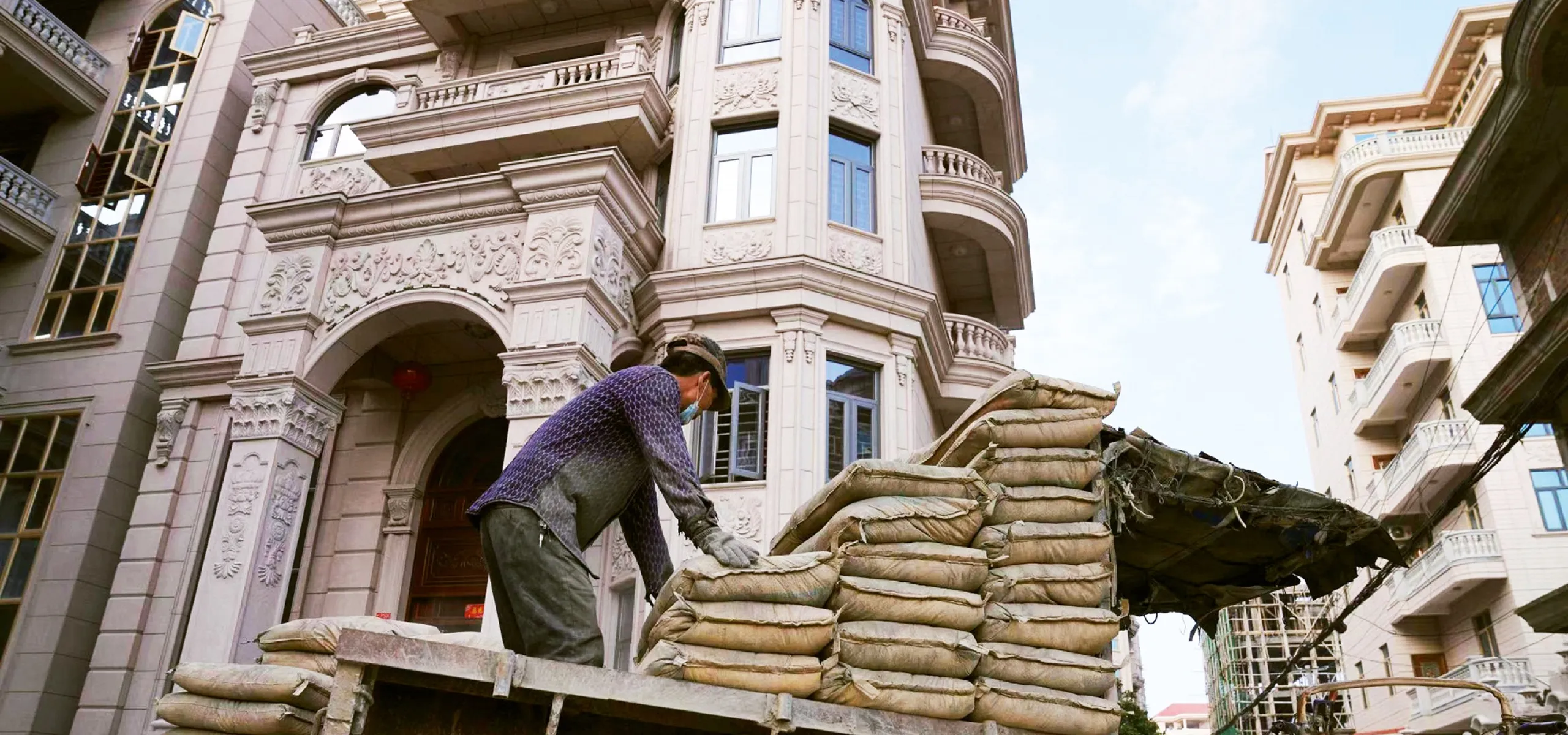China’s rural land is seeing a building boom as villagers exercise their homestead rights—but is it sustainable?
Every weekend, a mere one-hour drive from downtown Chengdu takes Ye Zi and her husband to an alluring mansion of over 200 square meters in Sichuan province, where they live an envious life: chatting with friends under a grapefruit tree, feeding fish in the pond, cooking barbecue in the yard, or just lounging in the beautiful rural surroundings. But this isn’t another “influencer” guesthouse catering to urbanites in a remote village—it’s Ye’s home.
Ye, a 30-year-old engineer who owns an apartment in Chengdu, decided to renovate her family’s ancestral home last September to turn it into a more comfortable space for her aging parents, who haven’t been able to adapt to urban life. “[Our apartment in Chengdu] is less than a hundred square meters. When we close the door, there is no more space for other activities,” explains Ye. “Everyone’s lives are separated; our neighbors don’t know one another.”
As of the end of 2019, China had more than 11 million hectares of “homestead land,” or zhaijidi (宅基地), which is rural land reserved for housing construction. Though a growing number of people are flocking to cities, leaving farmlands empty or repurposed for industry and government construction, there are signs that rural homestead land is coming back to life.
An article last December from the China Report on Agriculture, Rural Areas and Rural Residents, a publication under the Ministry of Agriculture, revealed that while the number of rural permanent residents dropped from 808 million in 2000 to 564 million in 2018, rural housing has grown from over 1.95 million hectares to 2.52 million hectares during that period. Reasons cited include high housing prices in cities, lack of social security and public services, as well as discriminatory education in cities.
The rural construction boom in the last two decades can also be partly explained by the traditional notion of “fallen leaves returning to roots”: the idea that no matter how far a person travels from home, they are obligated to return there before they die. Hundreds of millions of migrant workers from rural regions may spend their entire working lives in cities, yet build a home on their family’s homestead plot for eventual retirement, even if they have to leave the house empty until then. According to a report by the Chinese Academy of Social Sciences’ Rural Development Institute, around 10.7 percent of rural homesteads stood empty as of 2018—about 25 million homes.
Other traditional notions, such as a “face” culture that pressures residents of the village to show off their achievements in the cities by ostentatious home improvements, and the need to build a home for one’s sons before they marry, also play a role. In addition, for rural families without many assets, a house may be their only collateral for securing a loan. There’s also some time pressure: Before building the house on village land, which is collectively owned, rural residents need to apply for homestead rights from the village itself, which can be rescinded for a variety of reasons including if the applicant leaves the land unused for over two years.
This year, deputy secretary Zhao Lin in Shuangshi village, Sichuan, received about 70 applications for homestead rights. Half of them have been approved. To get approval to build in Zhao’s village, residents need sign-off from two-thirds of the village collective’s members, as well as confirmation from the local department of natural resources that the land will not take up farmland. The applicant also has to get approval from local planning officials on the size, number of stories, and design aesthetic of the house in a process that could take as little as a week or up to three months.
With land becoming more valuable, and migration changing the social cohesion of the village, land disputes have emerged in rural areas. Last year, a three-year-long dispute between neighbors in a village in Putian, Fujian, ended in tragedy when 55-year-old Ou Jinzhong killed two people and injured three more, including two toddlers, in the family next door, then went on the run for a week before committing suicide. The victims’ family had refused to sign off on Ou’s request to rebuild his house after he’d already torn the original house down, and harassed him whenever he tried to start construction, forcing him and his 89-year-old mother to live in a tin shack.
Paving Paradise: Behind China’s Rural Building Boom is a story from our issue, “Promised Land.” To read the entire issue, become a subscriber and receive the full magazine.













